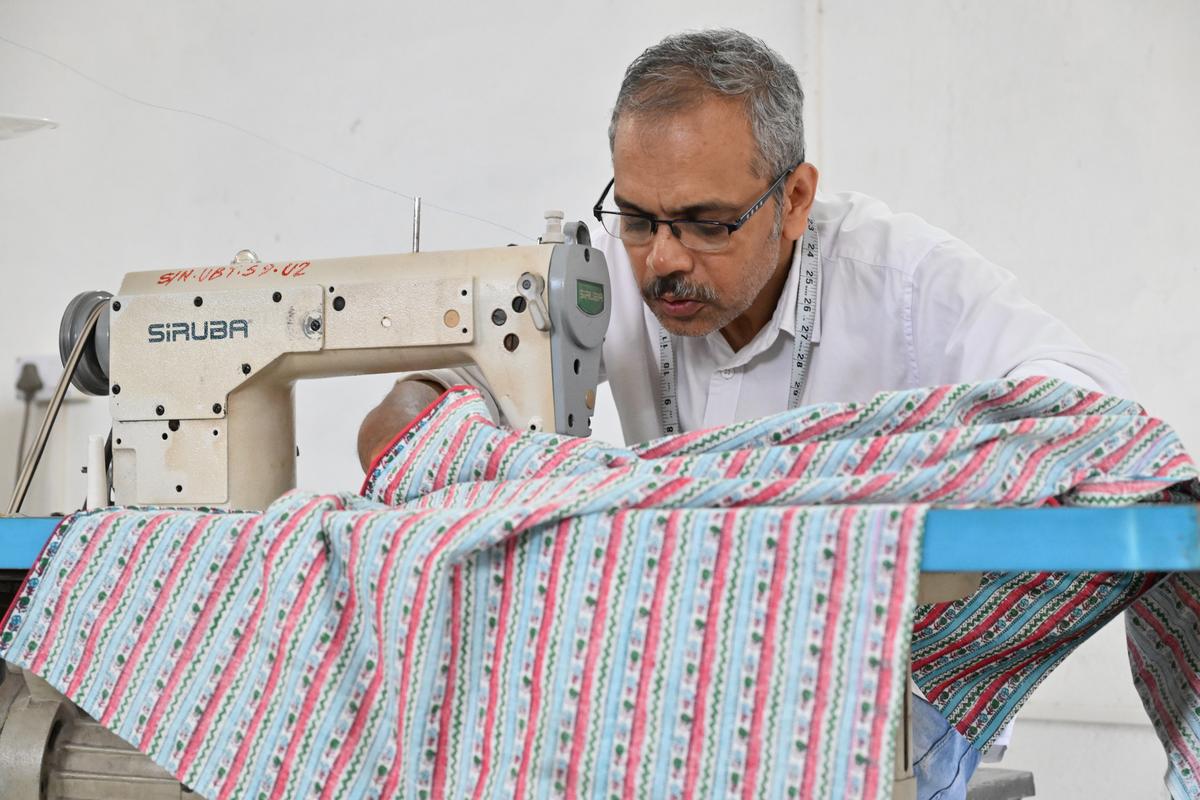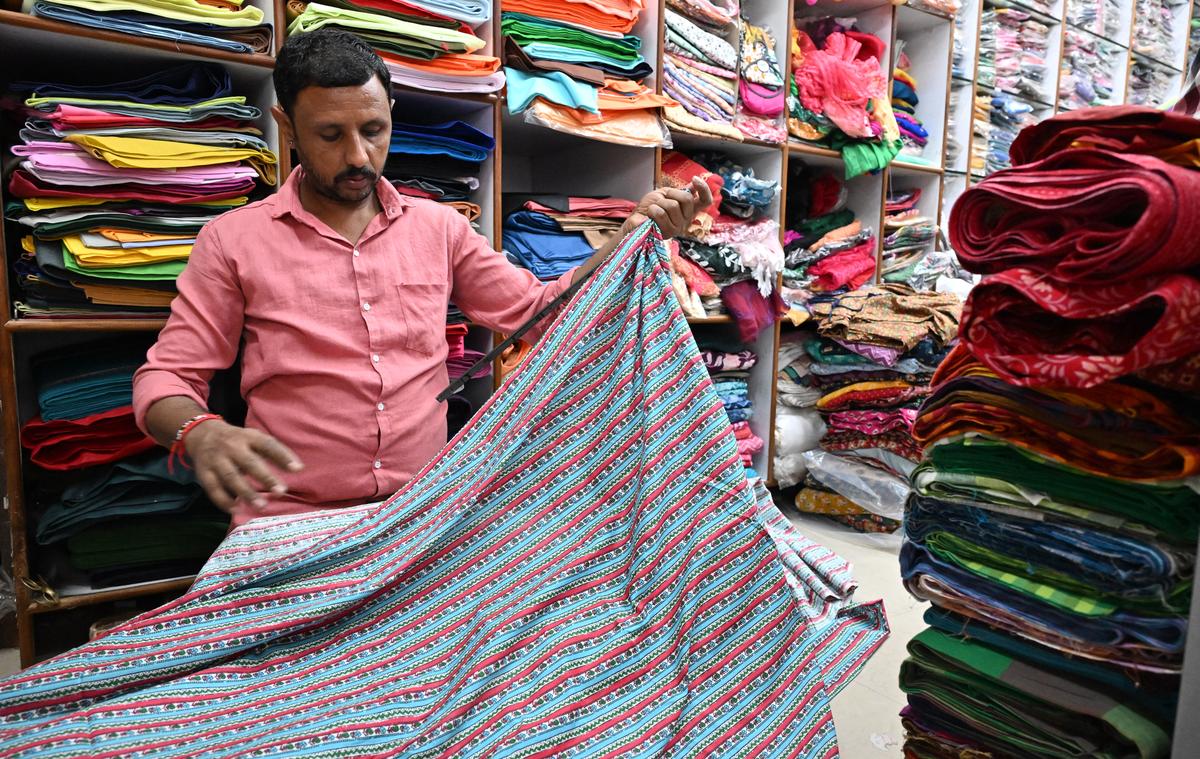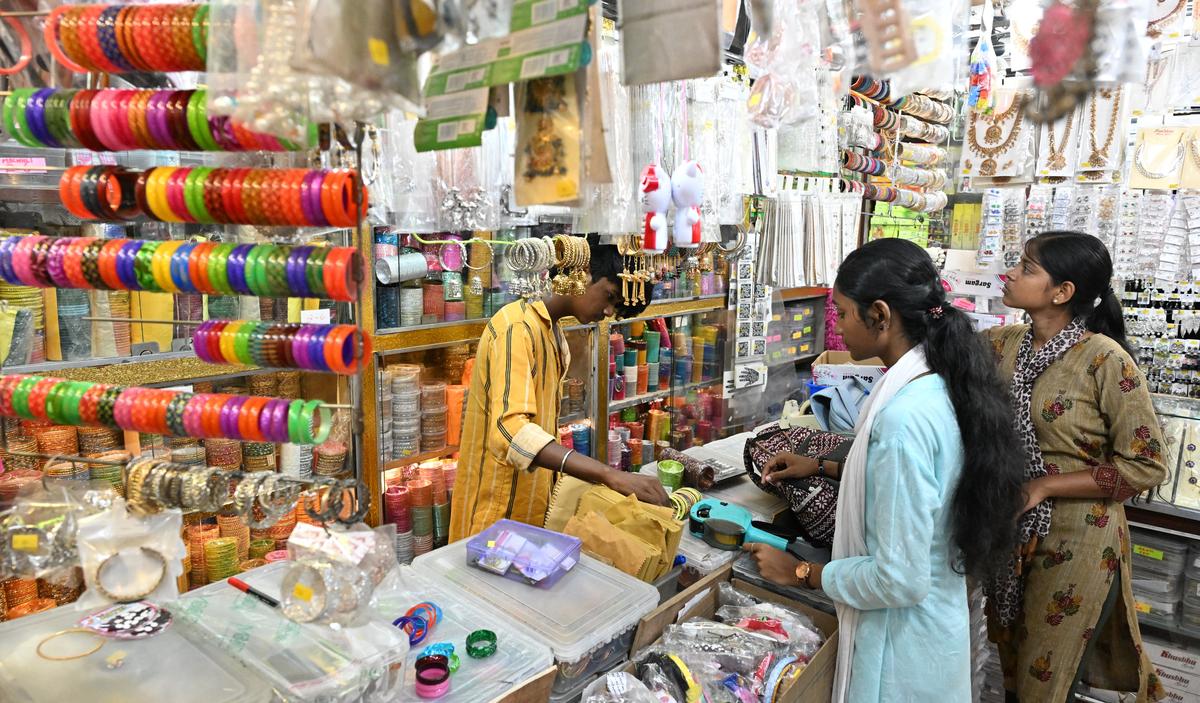Clock Tower at Big Bazaar Street in Coimbatore.
| Photo Credit: Siva Saravanan S
“Akka, sari-a? Chudidhar-a?” Call out salespersons on a brisk morning as I weave my way through the narrow Uppukinar Lane. Most textile shops located in the maze of streets of the neighbourhood have displayed their grandest products out front, and I give them a pass: no, I will not be able to buy anything there with my shoestring budget.
One hour magic
First, for some clothes. Uppukinar is the place to go if you are looking to buy yardage that can be tailored into outfits to your liking. The best part, prices start at ₹110 per metre. After a lot of asking around, I arrive at Arihant Fabrics that stocks a range of fabrics in cotton. There is plenty to choose from, and I pick a pink and blue one, and buy 2.5 metres of the fabric, which sets me back by ₹275. And now to get it tailored.

PM Asharaf can tailor salwar suits and kurtas in under one hour.
| Photo Credit:
Siva Saravanan S
It is easy to find tailors in the neighbourhood: there are several of them seated outside Arihant with sewing machines. But most of them do basic alteration work, and nothing more. One of the tailors directs me to a building nearby. On its second floor, past a steep flight of stairs, is the unit of Sneha Tailoring. Here, PM Asharaf, the owner, runs the show singlehandedly.

At Uppukinar Lane, customers choose from fabrics and tailored sets at the many textile shops in the neighbourhood.
| Photo Credit:
Siva SaravananS
He is working on a pastel orange salwar suit when we arrive. “Leave the fabric on the table; come back in an hour,” he instructs, without looking up. Asharaf is the most popular tailor at Uppukinar: he can stitch a chudidhar set in under one hour. He charges ₹300 for a kurta, and I readily offer him my new fabric.
The 52-year-old takes my measurements and gets to work: the cutting takes him just five minutes, and soon, Asharaf is back at his machine. He has been working in the area for 25 years, and before the pandemic hit, had a team of four tailors who worked under him. “I grew up in Malappuram in Kerala,” he says, as he sews the kurta. “I came to Coimbatore when I was 15 years old to learn a new skill.” Asharaf had a flair for designing and tailoring, and soon earned a popular customer base. He talks about his earlier days as a tailor, his cousin…and before we know it, the kurta is ready. It took him not more than 30 minutes.
What is a Deepavali outfit without colour-coordinated accessories? The best place for all things bling in the neighbourhood is the Bhura Market, my next stop.
Pitstop at Bhura market
The iconic market, known for its many shops that sell earrings, bangles, beads, and bindis, is usually where most shoppers head to after buying their Deepavali outfit. There is nothing one cannot find here: from butterfly clips and ‘disco’ rubber bands to unicorn hairclips and star-studded bangles. I buy scrunchies, bindis, bangles, and hairclips and in all, the bill stands at ₹300.

Bhura Market with its wide array of accessories.
| Photo Credit:
Siva Saravanan S
I still have footwear to buy: right opposite to the market stand three pushcarts selling sandals in browns and pastels. But with not much left to spend, I opt for a simple pair of black slippers for ₹100 at a shop by the pavement.
The expedition leaves me with a little to splurge at Sona Bakes, the corner tea shop popular for its hot vadais and bajjis. There, seated on a wooden bench, drinking coffee to the steady din of conversation, I do a quick calculation: I’m still left with some change. I buy an onion samosa to celebrate: a happy Deepavali indeed.
Published – October 12, 2024 10:12 am IST